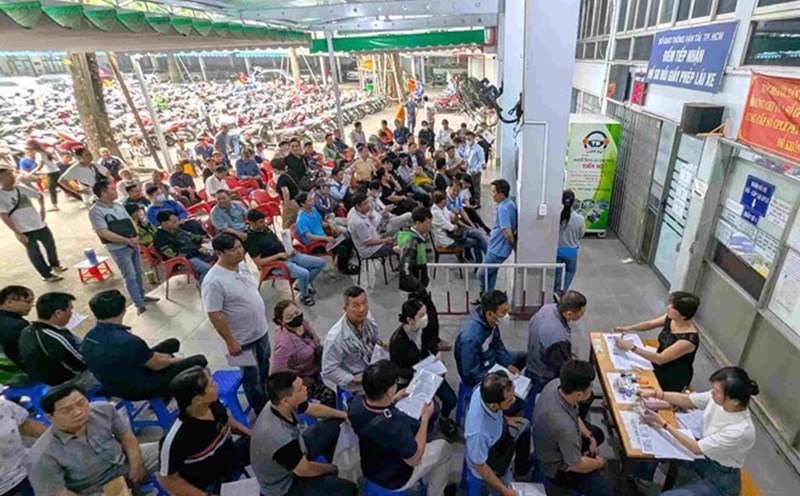Sustainable poverty reduction has always been identified by Yen Bai province as a key, continuous task, associated with the socio-economic development process.
The province and district focus resources, mobilize, integrate and effectively use capital for national target programs on sustainable poverty reduction and other legal capital sources to effectively implement.
Along with that, vocational training is carried out; take care to fully and promptly implement regimes and policies for policy beneficiaries, social protection and workers in accordance with regulations. On average, each year, jobs are created for over 2,200 workers; the rate of trained workers reaches over 76.5%...
In the period of 2022-2024, poverty reduction work has recorded positive results, contributing to improving people's lives. According to the multidimensional poverty standard applied for the period 2021-2025, the poverty rate in the province has decreased by an average of 4.13% per year, reaching and exceeding the program's target.
At the end of 2025, Yen Bai will record an impressive milestone when the poverty rate in the whole province is estimated to decrease to 4.18%, exceeding the set plan.
Yen Bai strives for the multidimensional poverty rate to be 6.87% by the end of the year; the near-poor household rate to be 2.69%; the poverty rate among ethnic minority households in 2025 compared to 2024 is 2.57% (2,849 households).
Maintain 19 communes and wards without poor households. Build 6 more communes, wards and towns, bringing the total number of communes, wards and towns without poor households by the end of 2025 to 25 communes, wards and towns (accounting for 14.88% of the total number of communes, wards and towns in the province).

From 2021 to 2025, the whole province has built and implemented 429 production development projects under national target programs with a total cost of 217.5 billion VND, supporting over 9,000 poor households, near-poor households, newly escaped poverty households and ethnic minority households.
The projects are implemented in the direction of supporting with conditions, with refunds, limiting for no, contributing to changing thinking and production methods, helping people gradually improve productivity and income to escape poverty sustainably. To make these models truly effective, the province has encouraged people to participate in cooperatives, cooperatives, and linkages with businesses.
Mr. Do Cong Chua - Deputy Head of the Department of Internal Affairs of Mu Cang Chai district - said that the district has improved the ability of poor people to access production services, supported farmers to borrow capital, learn a trade, convert crops and livestock to access science, technology, and market information.
Up to now, most of the land area for growing annual crops has been converted to grow specialty crops with high economic value, creating jobs all year round, helping people escape poverty and gradually get rich right in their homeland.
"The work of sustainable poverty reduction in the mountainous district of Mu Cang Chai is assessed by the Central Government as a typical locality, with many creative ways, suitable to reality, bringing positive results.
This work also creates a spreading force, encouraging the poor to resolutely rise up, the people's strength is strongly mobilized, contributing to changing lives, opening up a better future for nearly 70,000 Mong and Thai people in the mountainous district of Mu Cang Chai", Mr. Duong emphasized.
In Yen Bai province, poor districts and communes with special difficulties are considered poor " core areas" with the poverty rate often much higher than the general poverty rate of the province and the whole country.
Taking advantage of resources from national target programs, Yen Bai province has built and implemented 307 projects and production development models, including 5 projects to develop production linked to the value chain and 302 projects to develop community production with over 6,000 poor and near-poor households benefiting, mainly focusing on the poor "corner area".
With the "reduction of no-one, increase conditional support" and a system of policies covering everything from livelihood support, job creation to basic social services: housing, employment, healthcare, education, clean water... has created a strong motivation for poor households in poor " core areas" to rise up.











